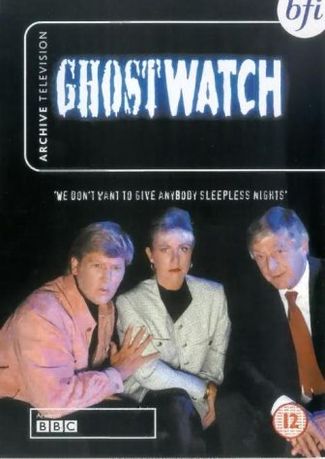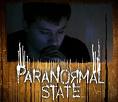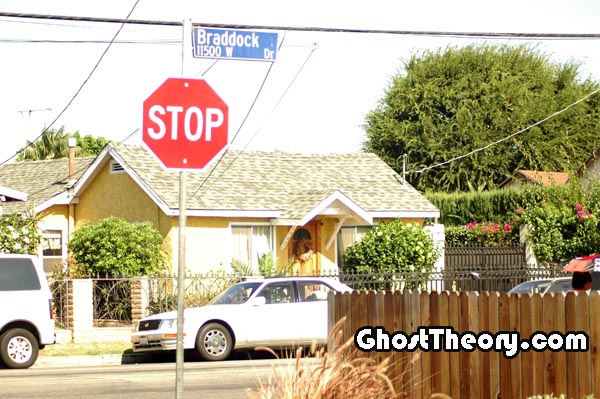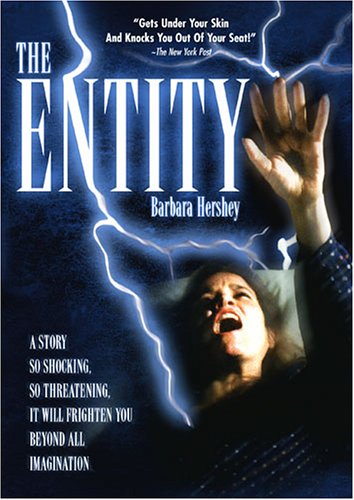Loyal GhostTheory reader and frequent commenter, Elfishgene, sent me an email last week submitting a movie for GT’s ‘Friday Video‘ segment. GhostWatch, a famous British “horror-mockumentary” that caused quite a controversy when it first aired on Halloween night 1992. I’ve never heard of GhostWatch before but after watching it, it’s no wonder why many people thought it was real.
Ghostwatch is a British horror-mockumentary television movie that was broadcast on BBC1 on 31 October (Halloween) 1992. Despite having been recorded weeks in advance, the narrative was presented as ‘live’ television. Due to the furore that followed its first and only UK television broadcast, the film is now widely regarded as being one of the most controversial British television events in recent years.
The film was produced for the BBC’s Screen One anthology series by Richard Broke, Ruth Baumgarten and Derek Nelson. It was written by Stephen Volk, and directed by Lesley Manning.
As yet, Ghostwatch has only ever been repeated on television outside of the UK – on stations such as the Canadian digital channel SCREAM for Halloween 2004, and the Belgian channel Canvas in 2008. Ghostwatch also currently holds the record for the highest rated single drama in the UK of all time with a peak audience of 11.5 million viewers, and an estimated 30,000 calls to the BBC switchboard in a single hour.[1] In 2002, the British Film Institute released a 10th Anniversary edition on VHS and DVD.
A retrospective documentary (Ghostwatch: Behind the Curtains) based on the film’s lasting impact has been in production since late 2007, and is said to be backed by many of the film’s original cast and crew.
Besides the confusion and scares it caused across the UK, there was one reported teenage suicide that was a direct result of the mass hysteria this programmed cause. It was written and shot to appear as a real life investigation. In the days before the taking over of Reality TV on regular programming, this type of stunts really damaged some people. (War of the Worlds)
Controversy
Much of the British public believed the events to be true and some controversy ensued after its airing. This was all in spite of the fact that Screen One was a drama slot, the programme aired with a “Written by …” credit at the start, and a cast list was published in the BBC’s Radio Times listings magazine. There is a long running rumour that Sarah Greene had advertised the programme on her Saturday morning children’s show Going Live, including a “visit” to the location of the “haunting” and gave the impression that she was taking part in a ‘reality show’ and not a drama. However, the Ghostwatch: Behind the Curtain blog (which gathers information for a long mooted documentary about the show) acquired the three most likely episodes (the week before, the day Ghostwatch was shown, and the week after) and found no reference to the show.[3] The BBC was besieged with phone calls from irate and frightened viewers, and British tabloids and other newspapers criticised the BBC the next day for the disturbing nature of some scenes, such as Greene’s final scene where she is locked in an under-stairs cupboard with the howling ghost, and Parkinson’s eerie possession scene.
The reaction to the programme led the BBC to place a decade-long ban on the programme being repeated after its initial broadcast and, although this has now been lifted, it remains unlikely that it will ever be shown again on British terrestrial television. The British Film Institute released it on Region 2 DVD in November 2002.
[edit] Psychological effects
A number of psychological effects were reported in Ghostwatch‘s wake:
18-year-old factory worker Martin Denham, who suffered from learning difficulties and had a mental age of 13, committed suicide five days after the programme aired. The family home had suffered with a faulty central heating system which had caused the pipes to knock; Denham linked this to the activity in the show causing great worry. He left a suicide note reading “if there are ghosts I will be … with you always as a ghost”. His mother and stepfather, April and Percy Denham, blamed the BBC. They claimed that Martin was “hypnotised and obsessed” by the programme.[4] The Broadcasting Standards Commission refused their complaint, along with 34 others, as being outside their remit, but the High Court granted the Denhams permission for a judicial review requiring the BSC to hear their complaint.[5][6]
In its ruling, the BSC stated that “The BBC had a duty to do more than simply hint at the deception it was practising on the audience. In Ghostwatch there was a deliberate attempt to cultivate a sense of menace.” They ruled that the programme was excessively distressing and graphic – referring to the scratches on the children and the mutilated animals – and that it had aired too soon after the 9pm watershed. They further stated that “the presence in the programme of presenters familiar from children’s programmes … took some parents off-guard in deciding whether their children could continue to view.”[7][8]
The film’s producers argued that Ghostwatch had aired during a drama slot, that it was recognisable as fiction to a vast majority, and that running disclaimers or other announcements during the programme would have ruined its effectiveness. They also stated that, had they anticipated the audience reaction, they would have made its fictional nature clearer. However, after the BSC ruling they issued an apology.[7]
Simons and Silveira published a report in the British Medical Journal in February 1994, describing two cases of Ghostwatch-induced post-traumatic stress disorder in children, both ten-year-old boys. They stated that these were the first reported cases of PTSD caused by a television programme.[9] Responses to the article described a further four cases in children aged between 11 and 14, as well as one case in an 8-year-old that stemmed from watching the pre-watershed hospital soap Casualty.[10][11] The respondants also noted the potential for similar reactions in elderly people. However, the conclusion of the article states “The rapid resolution of the children’s symptoms suggests that the children suffered a brief anxiety reaction to the television programme; although they may have exhibited some of the features of post-traumatic stress disorder, this diagnosis in their cases is inappropriate.”
So make sure you realize that this is just a mockumentary, or the next thing I know I will have some suits knocking on my door serving me court papers.
Full screen the video, turn off the lights and enjoy.
Have a good holiday weekend (to those of you in the U.S.) I’ll be in San Francisco this weekend. Don’t fret my fellow paranormal enthusiasts, I will be updating GT, because I know you guys can’t survive without my smartass comments and posts. 🙂





